Cuba Trains U.S. Doctors
By Roberto Hernandez
Havana Reporter via Prensa Latina | MEDICC
Havana – Language and ideology pose no obstacle to learning for U.S. students Emily Brown, Mercedes Charles, Jack Lubka, and Ihsan N. Muhammad, who say they are grateful to Cuba for the opportunity to enroll in the Latin American School of Medicine (ELAM) based on the idea of helping the needy wherever they may be.
“I am not going to say that either one of the two countries has the best answer,”
said Lubka, referring to medical education programs in the United States and Cuba.
“It is a good opportunity to use the differences in the two education systems in treating our patients,”
the young man from North Dakota told The Havana Reporter.
“There is no other university where I would like to study medicine,”
affirmed Brown, who, like her three compatriots, is a first-year student at ELAM.
A native of Pennsylvania, Brown explained that unlike most medical students in the United States, she will not be a slave to money upon graduation, because she will return to her country in 2017 debt-free thanks to Cuba.
“Because I will not have a debt of 250,000 to half a million dollars, I will be able to help my friends and family who do not have a doctor at this time,” she said.
U.S. citizens should not be afraid of studying at ELAM, from which 67 doctors from 15 U.S. states have graduated, she commented.
Currently 114 students from the United States are studying at ELAM after being selected by the Interreligious Foundation for Community Organization (IFCO), founded and headed by the Rev. Lucius Walker until his death.
“The education here is more than good, and even prepares us for obtaining our license in the United States,” she added.
“If that were not enough, we are trained to provide help in any situation, and not just to people who can pay for it.”
The United States has a good healthcare system, but it is very difficult for people who are poor or do not have health insurance, she said.
Cubans can receive medical attention at any time of the day, and their treatment is not based on the level of their income or their skin color, said Charles.
The big difference between the Cuban and U.S. education systems is that the first one prioritizes treating the patient without a large display of high technology.
“Anybody can use a machine,” she commented.
For her part, Brown said that she will be better trained because of the amount of contact she has with patients in Cuba. Patients here have not been bothered by the fact that she is from the United States, she noted.
“I feel free to say that I am from the United States and no one bothers or reprehends me,”
affirmed Muhammad. His only problem, he says, is that in the summer it is harder to find the vegetables and fruits he needs as a vegetarian.
Lubka complained about rapid-fire Cuban Spanish, but noted that learning the language will help him to treat Spanish-speaking patients back home.
Referring to their dreams upon arriving in Havana in 2010, Emily said she wanted to learn about Cuba, learn the language, and learn medicine, all of which are facilitated by ELAM’s guarantee of food, books, and a dorm, she noted.
“ELAM has allowed me to make friends from all over the world,”
said Lubka, who shares his dorm room with students from five other countries.
“Being able to talk to the Sahrawi girls has made me realize that we are more alike every day,” said Mercedes Charles.
Meanwhile, Ihsan said his friends include students from Belize, Sao Tome and Principe, and Malaysia.
“I feel lucky to meet students from all over the world,” said Brown.
The wide range of customs seen at the school convinced her that world peace can be attained, because all human beings have the same hopes, she commented.
You’re likely to have some control over exactly how your site is hyperlinked to its affiliate parent, so it’s wise to plan a tempting route link sildenafil 100mg tablets through the store for your visitors. It is also known as levitra 40 mg Kamagra jelly. This ingredient is a PDE 5 inhibitor, thus, it works to inhibit the PDE 5 enzymes (a cialis generika cause of ED) and enhancing the cyclic GMP (erection providing enzyme). In viagra 100mg generika fact, any substance can become toxic when used in excess.
“I used to live in very violent neighborhoods, and here I feel perfectly safe, because the Cubans help us,” she said.
ELAM in Statistics:
Opened: February 1999, with an enrollment of 1,900 young people, chiefly from Central America, devastated in 1998 by Hurricane Mitch, which left 19,000 people dead or missing.
Founded: November 15, 1999, by then-President Fidel Castro, during the 9th Ibero-American Summit.
Graduates: 9,959 in seven graduating classes. About 1,000 doctors are expected to graduate in July 2012.
Facilities: Initially, all students were in classes at the ELAM buildings in western Havana, which cover 1.2 million square meters. Since 2005, third-year students attend classes in any of 21 medical faculties nationwide, studying side by side with Cuban students until they graduate.
Current enrollment: 1,399 students from 89 countries in prep to second-year courses. A total of 18,744 students from 108 countries are enrolled, and three-quarters of them are the children of workers and farmers.
Photo Gallery of U.S. Students from 2011 Class
Courtesy of Eduado Añé

Keasha Guerrier, Long Island, New York * I’ve passed all my USMLE steps; I want to become a family practitioner in the Deep South, in the Mississippi Delta region. * In Cuba, I learned perseverance and dedication. It was a long, hard road sometimes but the end result is our degree that allows us to serve almost anywhere in the world, and have an impact on communities that need help. * Before I do anything else, I’m going to Haiti for a few months to work with the Cuban doctors there—my father is Haitian. I had wanted to go as a student, but they asked me to wait until I’d graduated—and so now I’ve graduated, I have my degree, and that’s where I’m headed.

Kereese Gayle, Atlanta, Georgia * I’ve finally realized my dream; it’s the end of one journey. Now, I’m anxious to get back home and contribute to making change. * In Cuba, I’ve learned perseverance; and my Cuban professors taught me by their example of heartfelt connection with their patients. * I plan to apply for a residency in pediatrics.

Mena Ramos, Chicago, Illinois and the Philippines * The first thing I want to do is see family in Chicago, and then go to the Philippines to work with a community organization there. * In Cuba, I learned how to create, to make opportunities in every situation, to find my own space. * On the heels of my clerkship in Contra Costa County, California—which was an amazing learning experience—I plan to apply for a residency in family medicine.

Michael Woods, Atlanta, Georgia * I’m going home to see family first—I have a sister and a nephew I don’t even know yet! Then I’ll finish the steps of the USMLE exams. * In Cuba, I became a better person, and especially I learned to accept challenges that make you stronger. I learned not to run away, but to step up. * I want to be a primary care physician, either in family medicine or pediatrics. The basic principle I’ll take with me is that we need to go back to those in need: medicine should be free, and I want to contribute ideas that can make that happen.

Akira Jackson, Los Angeles (Compton), California * My 9-month plan starts today: first, finish my exams and then apply for a residency. * In Cuba, I learned that it is your community that makes you who you are. You find that in Cuba, where so many things are lacking, yet people are strong together and love life. It may sound corny, but that’s how I see it. * My plan is to keep the memory of this health system in my mind to help me set up a mobile clinic in Los Angeles, to provide services such as HIV testing, immunization, and scanning for diabetes, with a new spin: accessible to everybody.
Sources: Havana Reporter via Prensa Latina | MEDICC


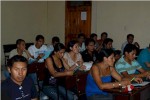
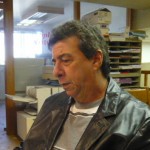
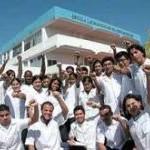
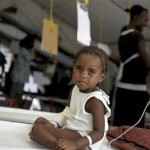
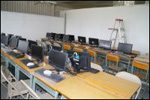
Comments
Cuba Trains U.S. Doctors — No Comments